"Milestone for Ukrainian studies" - KIU opens graduate school
They will spend three years researching Ukrainian art, history, politics and society, looking far beyond Ukraine: the first twelve doctoral students at the Graduate School at the Centre of Excellence for Interdisciplinary Ukrainian Studies (KIU). On 16 June 2025, the first graduate school for Ukrainian studies in Germany was opened at Viadrina. The Logensaal, which was packed to the last seat, discussed the future significance of Ukrainian studies, the benefits for international academia and the topics of the doctoral students.
3.8. With this figure, Dr Susann Worschech made it clear just how important the new graduate programme is. On average, 3.8 Ukraine-related dissertations are produced at German universities every year. "This figure symbolises the marginalised role that Ukraine has played in German academia to date," said the academic coordinator of the KIU, calling the opening of the graduate programme a milestone for Ukrainian studies against this backdrop. "We are writing academic history in Germany today," she said, deliberately and proudly.
gallery opening graduate school kiu
The fact that the programme is indeed perceived as an important step far beyond Germany's borders is demonstrated by the numbers. Around 90 applications from many countries around the world have been received for the graduate programme, twelve doctoral projects have been selected and nine of the doctoral students are being supported with a scholarship. On the other hand, the prominent academic, political and civil society representatives in the audience and on the podium also testified to the importance of the event. Guests from the Ukrainian embassy, the state government, the state parliament and the international academic community attended the opening. Volodymyr Sheiko, Director of the Ukrainian Institute, travelled all the way from Kyiv. In his speech, he emphasised the importance of scientific research on Ukraine for its national security. "For a long time, Russia determined the image of Ukraine in Europe. This view also became the basis for the assumption that Ukraine could not survive the war," said Sheiko. Changing the narrative through Ukrainian studies is not just an act of solidarity, however. He is convinced that a deeper understanding of Ukrainian history and society is important for the pan-European security architecture.
In the subsequent panel discussion, Prof Dr Yuliya Yurchuk from Södertörn University in Sweden stated that despite the growing interest in Ukraine, there are still many gaps in knowledge in European media and societies. Ukraine's self-image is also changing before the eyes of the global public. Prof. Dr Oksana Mikheieva from the Ukrainian Catholic University of Lviv also emphasised the urgent and ongoing need for change in the study of Ukraine. "We need to understand knowledge about Ukraine anew, decolonise it and reassemble the fragments," emphasised the former Viadrina scholarship holder. She is proud to see that Viadrina and the KIU are becoming a German centre for Ukrainian studies. "These are huge changes and we are at the epicentre of this change," she said.
It was repeatedly emphasised on the podium that Ukrainian studies are not an end in itself and are not just of interest to Ukraine itself. "It's about understanding global processes," said Yuliya Yurchuk. Oksana Mikheieva also emphasised that the resilience of Ukrainians, migration issues and management models are all relevant from a global perspective. When asked about the sustainability of Ukrainian studies, Volodymyr Sheiko said: "The key is for universities to understand the value of Ukrainian studies for themselves. That we explain well why it is a useful addition to their portfolio." In order to counter the future marginalisation of Ukrainian studies, which inevitably threatens with the end of the war, the interdisciplinarity and breadth of Ukrainian studies is crucial.
The interdisciplinary nature of the graduate school was demonstrated by the doctoral students with a brief presentation of their research topics, which they will be working on over the next three years under the supervision of various KIU partners. The projects range from the question of how social media communication about the war can generate empathy, to exploring easy language in Ukraine and feminist perspectives on peace, to researching queer bodies in Ukrainian art and means of fighting corruption in the ongoing war. Overview of the doctoral students and their projects
Iryna Samchenko, Counsellor of the Ukrainian Embassy in Germany, thanked the young researchers for "helping to give Ukraine back its voice". In any case, thanks to the KIU graduate programme, it is going to be far more than 3.8 dissertations on Ukrainian topics will be completed in Germany in 2028. "We are here to change that; you are here to change that," said Susann Worschech, addressing the first cohort.
translated bei deepL and edited
Back to the news portal
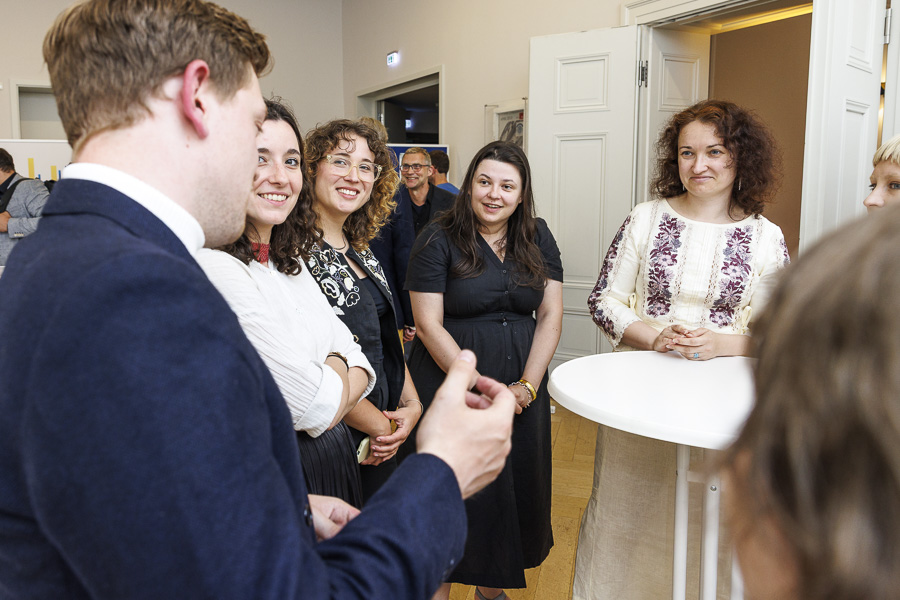
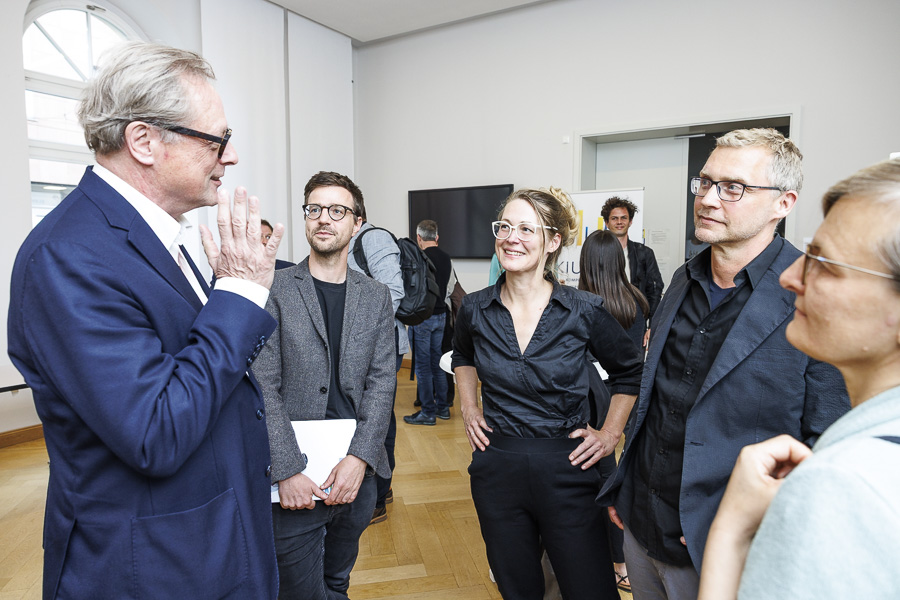
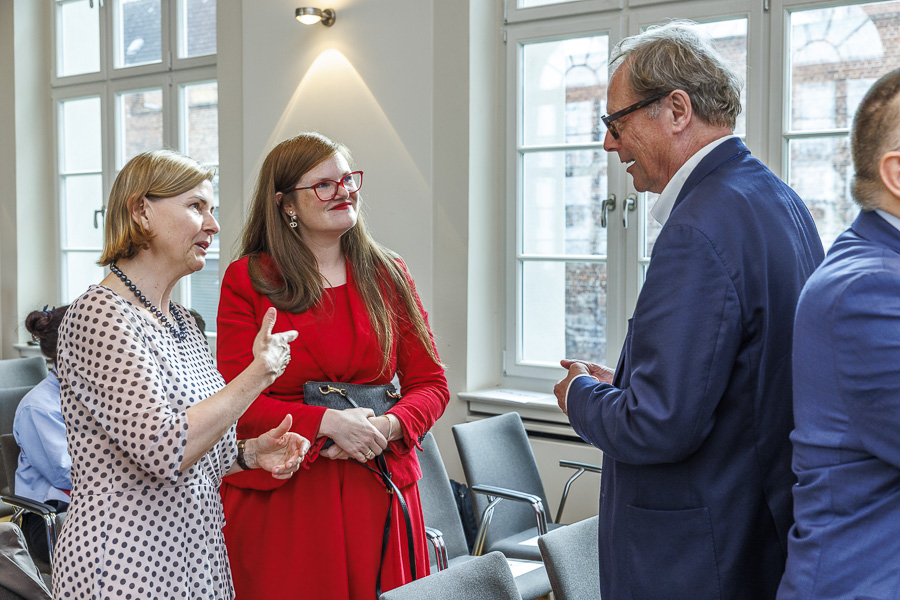
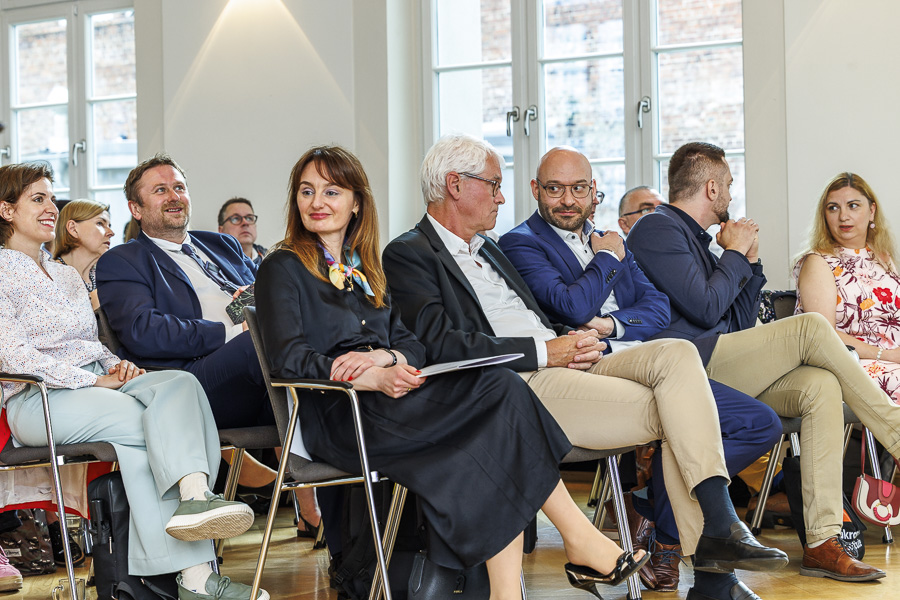
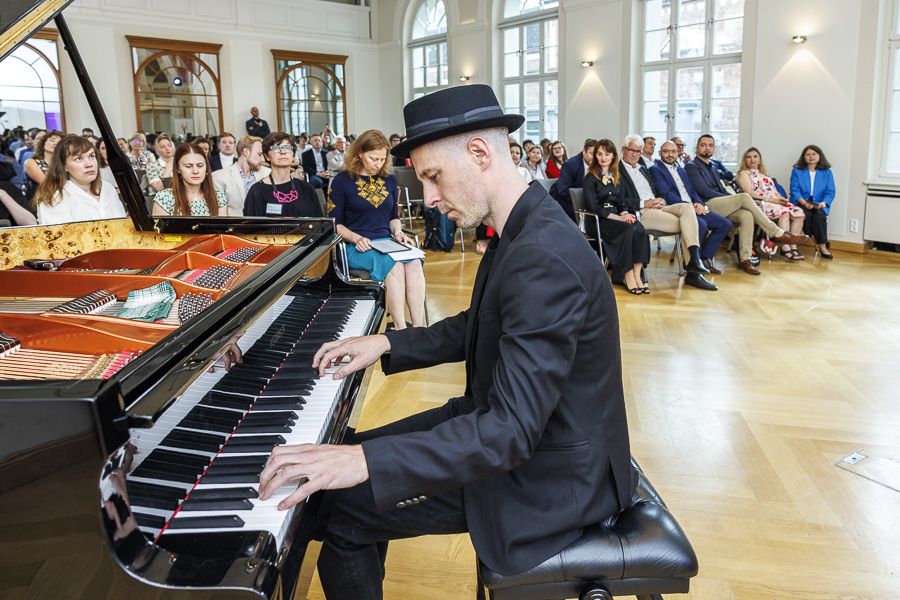
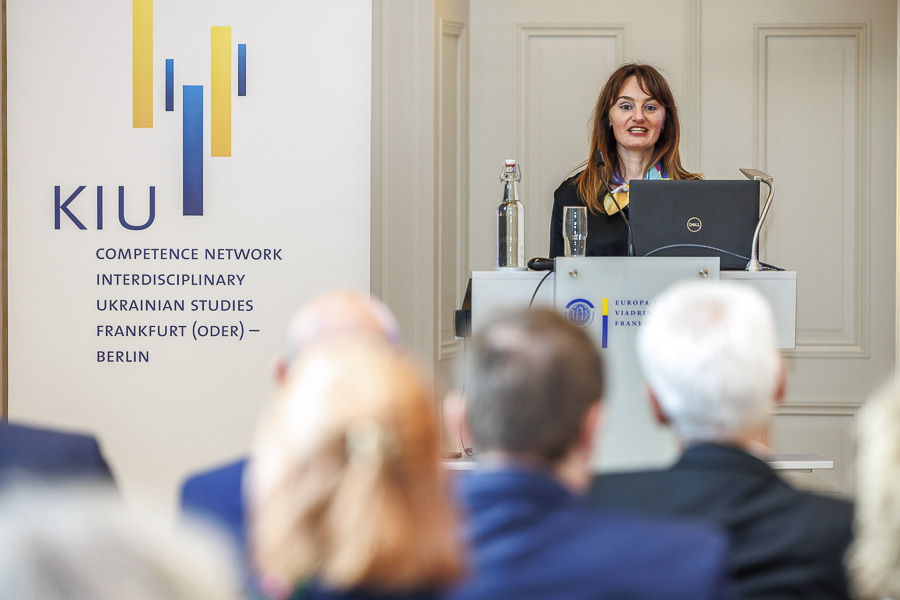
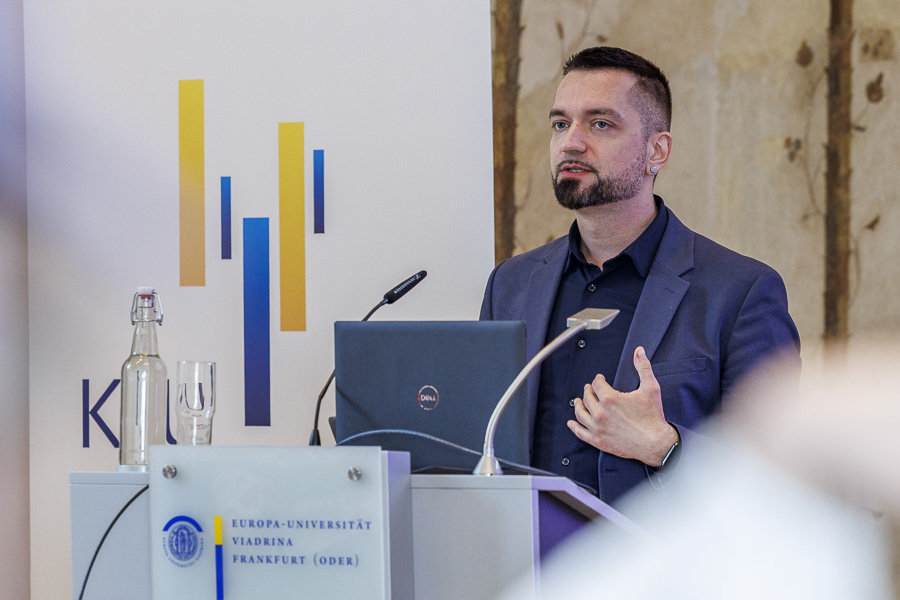
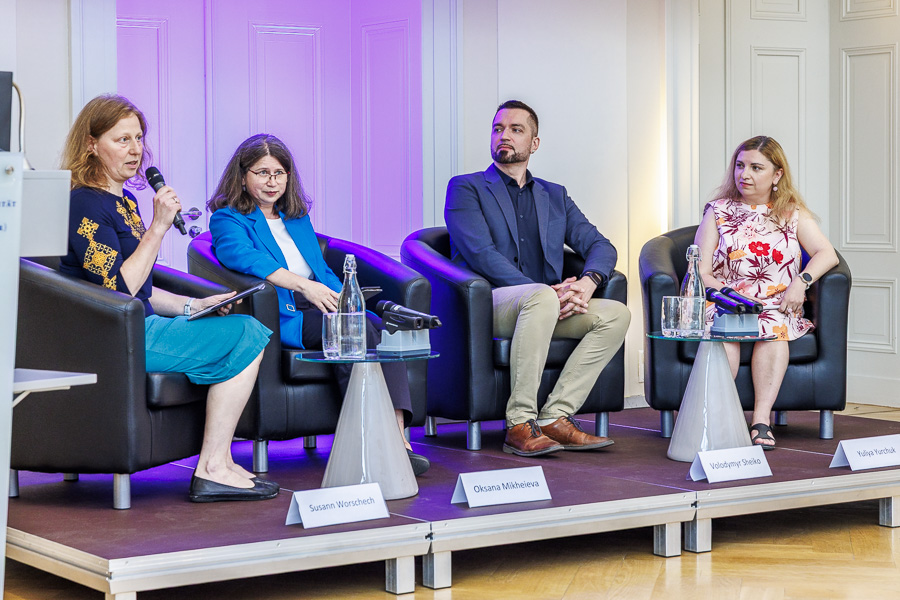

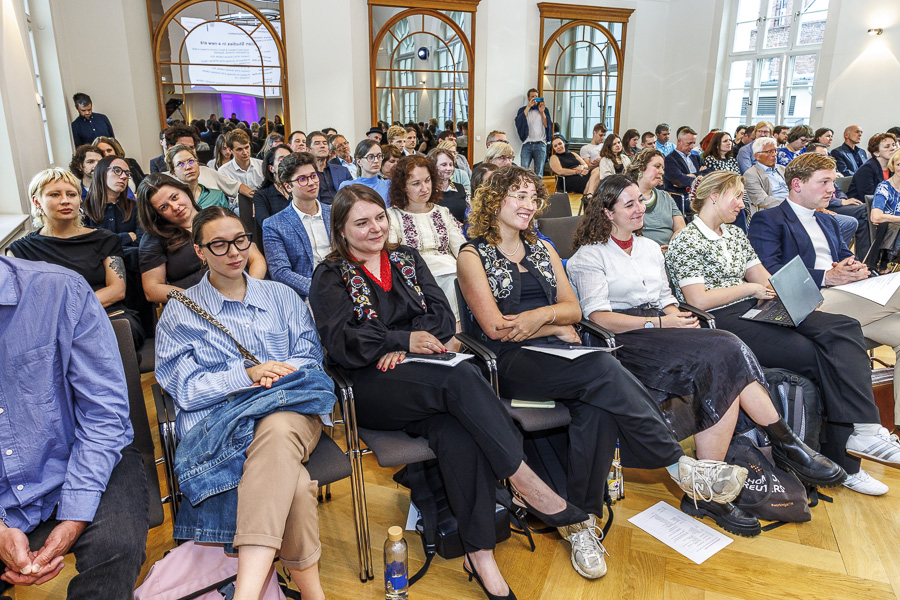
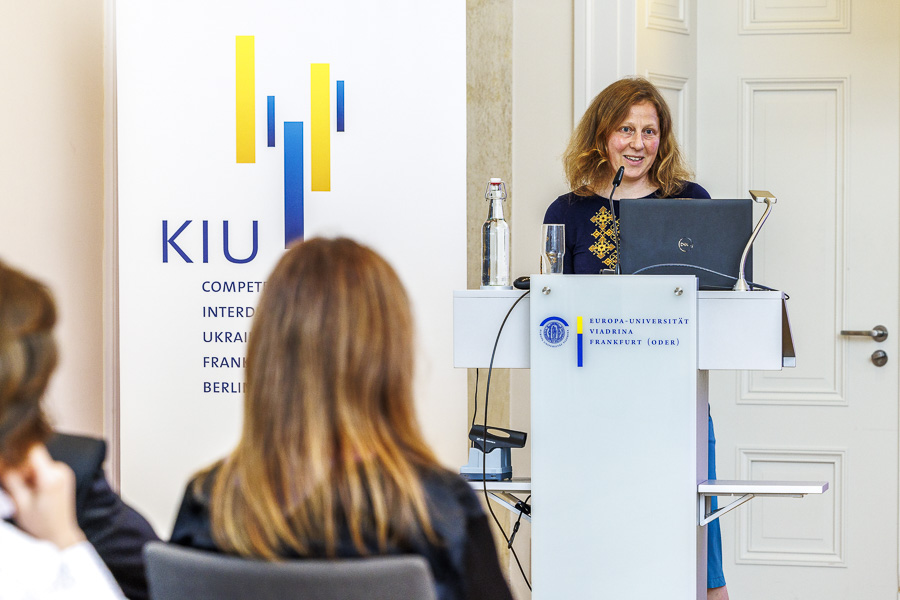
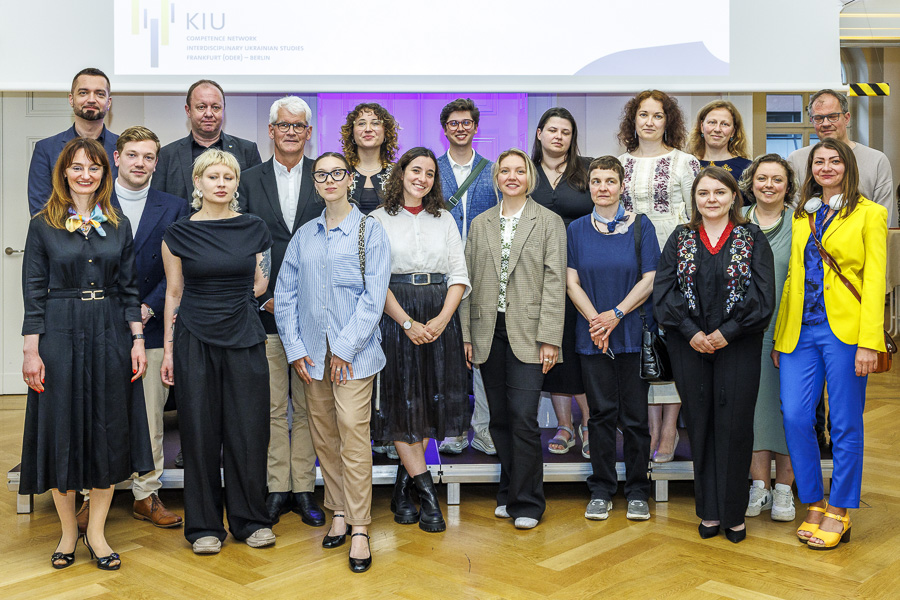
Share article: